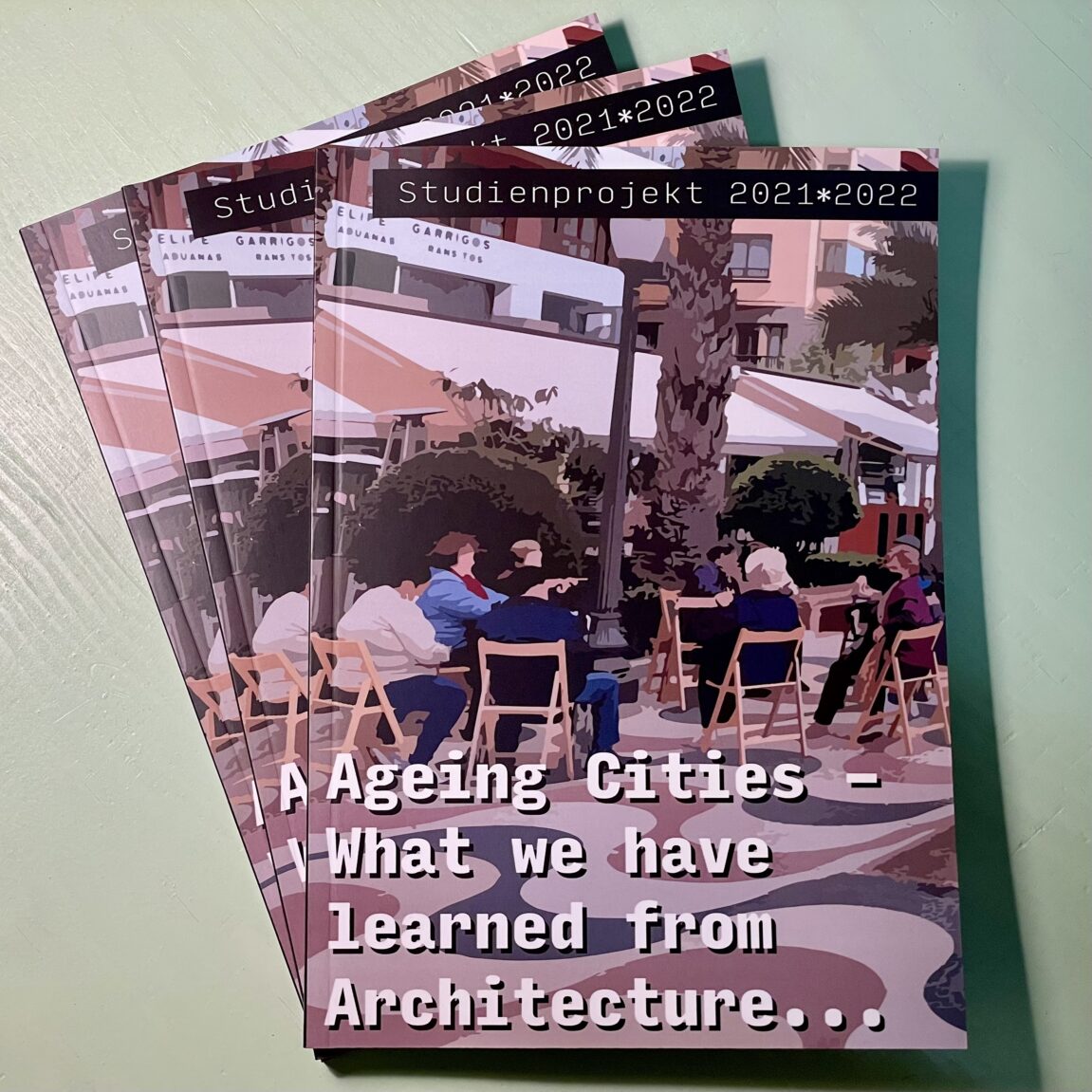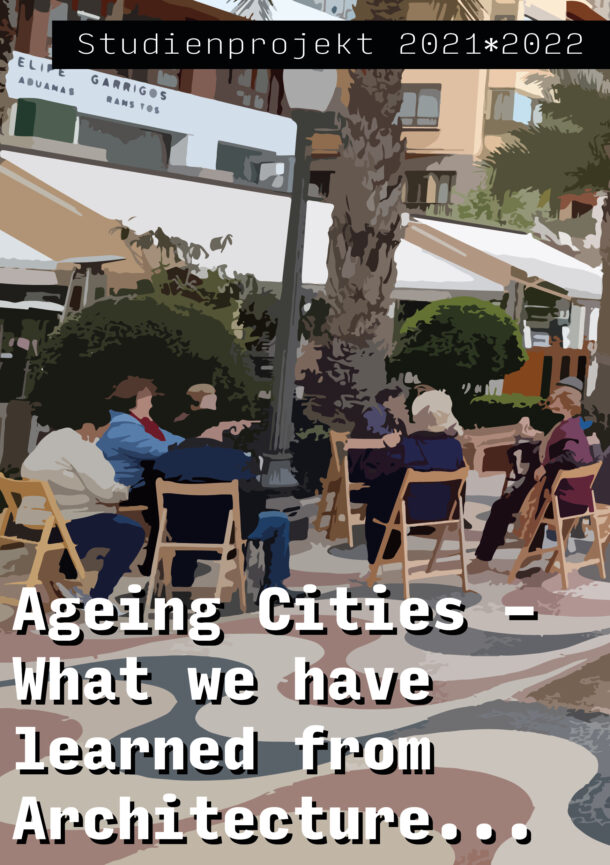
How are cities and urban designers responding to the challenge of population ageing?
How can we as ethnographers understand the social and material transformations underway in their efforts to shape ‘ageing-friendly’ cities or cities ‘for all ages’? These are two of the leading research questions of the ethnographic study project “Ageing Cities,” carried out over the course of 2021-2022, which resulted in a zine which was recently published (see below for download link).
The main concern has been to explore the distinctive intergenerational design challenges of what some architects and urban planners are beginning to call “Late Life Urbanism.“ Research explorations included an excursion in April 2022 to Alicante, Benidorm and neighbouring urban enclaves in the Costa Blanca (Spain). The area is relevant as ageing bodies and practices have become, since the 1960s, a sort of vector of urbanisation in the region: developing into what some geographers call “the Pensioners’ Coast“.
Considering the intriguing history of migration of this region, with pensioners from all over Central and Northern Europe (but also from other regions of Spain) relocating there, the “Pensioners’ Coast“ is an interesting experimental ground to witness what happens when older bodies take centre-stage.
Over the course of seven eventful and exciting days student researchers had the chance to explore how sensitised urban designers from the area respond to the intergenerational design challenges these bodies bring in different ways.
In a joint endeavour with STS-inspired architectural researchers from the Critical Pedagogies, Ecological Politics and Material Practices research group of the University of Alicante, the visit allowed the research group to explore different approaches to architectural practice where older people have more active roles in the design and management of ageing cities (from cooperative senior cohousing to inter- and multigenerational housing projects, as well as accessible public space infrastructures, ranging from sidewalks to beaches and public transportation).
With this Zine the research group wish to share some of their main reflections on engaging ethnographically with late life urbanism in Costa Blanca (or should we say eng-age?). The Zine could be taken as a long thank you note and a memoir of encounters with different initiatives. It is also a relevant intergenerational gift of sorts, given to future urban researchers on these topics.
For a complete download of the zine please click this link: https://tscriado.org/wp-content/uploads/2023/11/ageingcitieszine-HiRes.pdf

